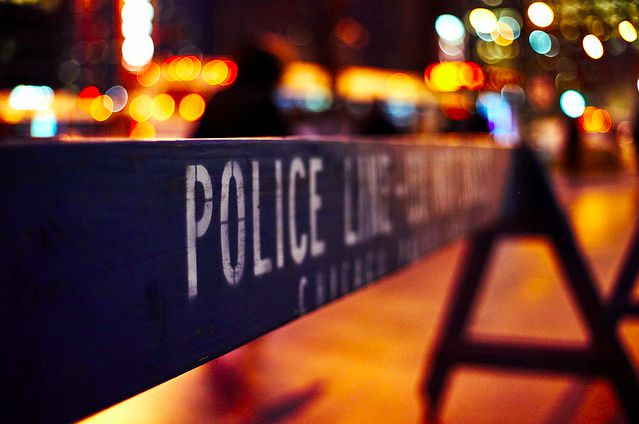Chicago Gun Violence Is Up And Arrests Are Down Following Laquan Scandal
By Rachel Cromidas in News on Apr 11, 2016 10:26PM
As if we needed another sign that Chicago's gun violence problem is out of control, the data wizards at FiveThirtyEight have released some troubling findings: gun violence is up in Chicago, yes, but arrests are also down—and the trends began last fall, at around the time the city released video footage of a Chicago cop brutally shooting an unarmed black teenager, Laquan McDonald, 16 times.
When the video was released, the fatal shooting had occurred over a year ago, leading many to accuse city government of a cover-up. The police officer who shot McDonald, Jason Van Dyke, was charged with six counts of homicide after the video was made public.
The data analytics blog's analysis shows that Chicago has seen a "significant" drop in arrests since the video release on Nov. 24, in addition to an uptick in violence that marred Chicago's winter and continues into spring. "This suggests a decline in law enforcement activity that may be contributing to the rise in gun crime," write Rob Arthur and Jeff Asher in the FiveThirtyEight piece, published Monday afternoon.
Chicago is on-pace to have one of the bloodiest years it has seen in a while, and while calls for major reforms to Chicago's police force to prevent more police shootings like McDonald's killing are widespread, some are saying the police aren't doing enough to tamp down violence. Interim Police Chief Eddie Johnson and police union reps have hinted that some cops may be making fewer arrests because they are confused or afraid of increased scrutiny on their behavior and performance—particularly with discussing of police accountability and a Department of Justice investigation into CPD looming. And, after years of protests in Ferguson, Missouri, some are now blaming the "Ferguson effect" for declining arrests, arguing police fear public scrutiny on police brutality and racial profiling.
FiveThirtyEight acknowledges that crime stats can fluctuate a lot, but Chicago's 20 percent increase in violence this year over last year is unlikely to be pure chance. And yes, crime is usually up with the temperature, and Chicago had an unusually warm winter—but that doesn't explain it, either, the writers say.
"The spike in gun violence in Chicago since the end of November, though, is too sharp to be explained by seasonal fluctuations or chance. There have been 175 homicides and approximately 675 nonfatal shooting incidents1 from Dec. 1 through March 31, according to our analysis of city data.2 The 69 percent drop in the nonfatal shooting arrest rate and the 48 percent drop in the homicide arrest rate since the video’s release are also too large to be explained by seasonal variation or chance. Even though crime statistics can see a good amount of variation from year to year and from month to month, this spike in gun violence is statistically significant, and the falling arrest numbers suggest real changes in the process of policing in Chicago since the video’s release."
The blog offers a thorough analysis of Chicago crime trends, and even compares arrests made in connection to homicides this year versus last year (no surprise, those are down as well) using Chicago's public data portal. The report is thorough and we can't summarize it all, but we recommend taking a look.
Chicago Police Department spokesman Anthony Guglielmi told FiveThirtyEight that CPD has implemented several new policing measures to slow the shootings since mid-February, and is seeing results. He also attributed the decline in shooting arrests to civilians involved in shootings "not cooperating." Meanwhile, celebrated local journalist Jamie Kalven told FiveThirtyEight that it's unsurprising that individual officers might be altering their policing practices in the wake of the McDonald scandal and other high-profile police shootings.
"There is “a genuine lack of clarity about the job description, the parameters of the job, and who will have their back in ambiguous situations,” Kalven said.
But there are other factors at play, too; Roseanna Ander, an executive director at the University of Chicago Crime Lab, notes that Illinois's budget crisis has taken a heavy toll on local crime prevention and intervention services.
It's a very troubling outlook. And, the past week aside, the weather's only getting warmer.
